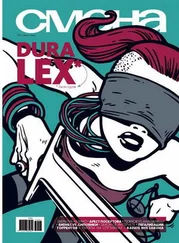For instance: Let us say you are Cherry Chisolm of the Weekly Galaxy and you wish to interview Ray Jones’s ex-wife, who is being paid handsomely by Ray Jones to keep her flappin trap shut. If you call Ray Jones’ ex-wife — also named Cherry, interestingly — and say, “Hi, I’m Cherry Chisolm of the Weekly Galaxy and I’d—” that’s as far as you’ll get before she hangs up. But if you call and say, “Good afternoon, I am Laura Carrington, calling on behalf of the Countess Sylvia Bonofrio. Mademoiselle has asked the countess if she will chat with you for publication. Now, as you know, Countess Sylvia rarely gives interviews herself , but feeling the empathy toward you that she does, and I’m sure you remember the absolute hell the countess went through seven years ago when Alfredo — Well, I’m sure she’d rather I didn’t go over all that again.” And so on.
At some point in this flap-doodle, the ex-wife will ask to call back, won’t she? She listened this long, but she’s doubtful; she wants to talk it over with her lawyer and her boyfriend and her best girlfriend, so she’ll ask if she can call back. Now, you don’t want to give her a hotel telephone number, do you? You don’t want your calls to go through a hotel operator who might very well have already been suborned by some other scurrilous paper, do you? You don’t want a hotel maid to wander into the room during the next call, do you, while you’re talking with an Italian accent and being Countess Sylvia?
Of course not. If you wish to use a phone, if you wish to set up a darkroom (in the bathroom), if you wish to interview a witness, a relative, a venal police officer, if you want a private conversation with anybody at all in which both information and money may change hands, you don’t want that happening in a hotel, do you? Or anywhere out in the world, right? What you want is your own house. Every time there occurs in the world what the Galaxy thinks of as a major story, therefore, the Galaxy begins by renting a house.
This particular story’s house, at 1023 Cherokee, was in the old original part of Branson, the part that existed when the only strangers who’d ever heard of the place were bass fishermen. (Of course, once the Army Corps of Engineers put in those flood-control and hydroelectric dams, converting the flood-prone White River into a lot of weird-shaped lakes, there wasn’t any bass fishing anymore because of the severe temperature change of the water, but not to worry. They put in the fish hatchery, near which Belle Hardwick would eventually expire, and stocked their fake lakes with trout. From a real river with real bass to imitation lakes with interjected trout, the fishing equivalent of a carnival game. But, hey, fish are fish, right?)
Anyway, 1023 Cherokee was owned by a nice widow lady who lived mostly in a nearby nursing home these days. Her house was so thoroughly low-maintenance, it, too, could have been put together by the Army Corps of Engineers; beige paneled walls, beige wall-to-wall carpeting, Formica and Scotchgarded beige furniture. (All the furniture was now out in the carport, under tarps.)
It was in this place, surrounded by photographers caring for their equipment as endlessly and lovingly as any infantryman cares for his rifle, plus reporters on the phone, reporters on the manual portable typewriters given out by the Galaxy to any of its staffers forced to face the rigors of the road, reporters studying the road maps and topographical maps and real estate maps and all the other maps defacing the nice widow’s walls, reporters sleeping on the floor under tables, reporters arguing with other reporters, photographers taking photos of miniatures set up on shaky tables, which just might be made with extensive retouching to look like aerial photos of Ray Jones’s house out at Porte Regal, or the murder scene, or photos of the courtroom or Ray Jones himself behind some sort of bars, it was in this restful setting that Binx Radwell, editor, boss of this madhouse, sat and listened to the voice from Florida.
The owner of this particular voice, this nasty voice like a cross between a moped and a dentist’s drill, was a demidemon named Scarpnafe. He was not an editor, not a fact checker, not an evaluator, nor any of the other normal horrors of the editorial department; he was some sort of “manager,” possibly an “assistant flow manager,” or a “deputy product manager.” This was an added layer of harassment, inserted by the new ownership, who had sent to the Galaxy building from their corporate headquarters down in Homestead a number of their minor devils to form a new level of control. These days, every employee of the Galaxy had one of these demidemons perched on his or her shoulder, second-guessing, haranguing, nitpicking, prodding, never satisfied. Narrow pasty people, young and skinny, in dark blue suits and narrow ties, with the pinched faces of creatures taken off the breast too early. Way too early.
This one, Scarpnafe, had just called to say do more, get on with it, faster, deliver or die. “Thursday,” said this rasp of doom, “we go to press.”
This had been true for many, many years, going back much longer than Binx’s employment, since the paper came out every Friday to catch the weekend shopper, but Binx perforce had to receive the fact as though it were a startling and inspiring piece of fresh news. “Ah, right!” he cried, and turned his head aside from the phone to burp, a bad-tasting burp.
The voice in his ear whined on: “Jury selection is tomorrow, in the trial.”
Oh, that jury selection. “That’s right. That’s right,” Binx agreed, nodding spastically as sweat droplets sprayed from his head.
“Tomorrow is Wednesday.”
“Yes, it is! It is!”
“We will want those jurors.”
“Yes, of course,” Binx agreed, having no idea what Scarpnafe meant. Want those jurors? Scarpnafe made it sound as though he wanted those jurors lightly sautéed on a bed of lettuce, but that couldn’t be right, could it? Oh God, what now?
“Their names,” Scarpnafe explained.
“Naturally.” Binx sighed, afraid to feel relief — not yet.
“Bios.”
“Absolutely.”
“Interviews.”
The volcano sent a little lava into Binx’s throat, just a little. “Interviews? But, but—”
“Not afterward,” Scarpnafe elaborated. “Now, before deliberation.”
“The thing is, uh, the only thing is, little, uh, thing. Is,” Binx said, swallowing like mad, rubbing his belly with his free hand as though to soothe a dangerous cat, “the thing is, the jury’s going to be, uh, sequestered.”
“Sequest?”
“Ered.”
“What’s that?”
“Well, uh, locked up. It’s a death-penalty thing they do, serious cases; they put the jury in motel rooms, lock them up; they can’t read the papers, watch television—”
“This is America!” Scarpnafe cried, outraged.
“Well, uh,” Binx explained, hating to be the bearer of such tidings, “apparently that’s the way they do it... in America.”
“Bribe a relative,” Scarpnafe ordered, rolling very well with the punch.
“They don’t get to talk to their relatives,” Binx said. “Not without a bailiff there.”
“What are they, in prison?”
“Just about.”
“Bug the motel!”
“Uh,” Binx said as rivers of sweat foamed and whitecapped the rapids of his body. He could think of nothing else to say. He sat there, the phone at his damp ear, mouth open like a gargoyle on a French cathedral.
“Well? What’s the problem?”
Binx knew the answer to that one. “Nothing!” he cried brightly, and then inspiration — or perhaps desperation — struck. “Just as soon as you fax me the order, sir, I’ll put my team on it.”
Читать дальше







